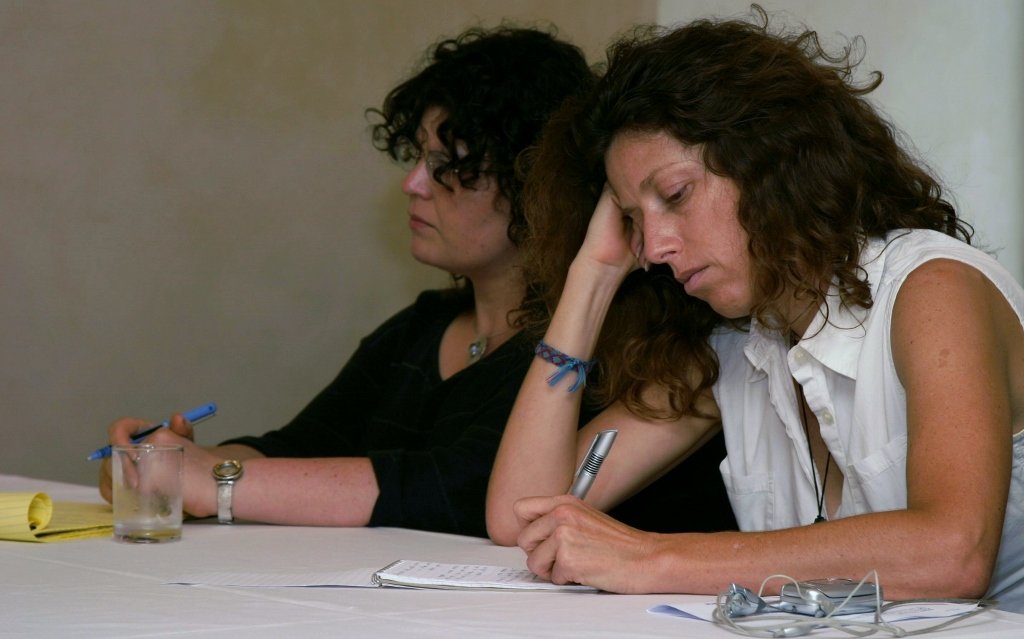Share This Story, Choose Your Platform!
Exactly one month after its constitution, the 21st Knesset has already disbanded on May 29, 2019. For the first time there is thus a Knesset in the history of the state of Israel, which has not passed a single law. In addition, Israel’s legislators with thirty days in office have set a record for the shortest legislative term. On September 17, there will be new elections. Thus, after the municipal elections last fall, the citizens of Israel will be asked to vote for the third time in one year, which also is also a “first”.
How could this happen?
The election result of April 9, actually, has been quite clear. The center-right bloc around Benjamin Netanyahu had reached 65 out of 120 seats in the Israeli parliament. But because the five MKs of the Russian-immigrant party “Israel Beiteinu” (“Israel our homeland”) refused their support, Netanyahu was in the end not able to form a government.
Avigdor Lieberman, chairman of “Israel Beiteinu”, had already in December 2018 provoked the Knesset’s dissolution. Now again it was Lieberman who made it impossible to form a government capable of acting.
Compulsory military service for ultra-Orthodox?
The official reason for the failure of the coalition negotiations was a bill, that requires general conscription for ultra-orthodox Jews. Nobody, however, really understands what Lieberman’s problem is. Details of the compulsory military service for the ultra-Orthodox, who have until now been exempted from military service, have driven the political system crazy for years. And the army itself seems not sure if it even wants more ultra-orthodox soldiers.
Observers and commentators from all directions agree: It is not the conscription for ultra-Orthodox what made this government formation fail. A few hours after the decision for new elections, Ariyeh Der’i, head of the Orthodox-Sephardic Shass party, revealed that the ultra-Orthodox had even offered to support a minority government led by Netanyahu and Lieberman from the outside, that is, without their own participation in government offices. But even this offer Lieberman had refused.
How then may the stubbornness of Avigdor Lieberman be explained? What is it all about? Is it about power, personal revenge or even plain sadism? On the fateful night of May 29 to 30, a few hours before the parliamentary vote, Likud spokesman Jonathan Urich tweeted: “It’s not conscription and it’s not ‘principles.’ Lieberman wants to destroy Netanyahu. The rest is spin.”
Netanyahu’s enemies are happy
It is true in any case that the glee on the part of the political enemies of Netanyahu is great. And now, with new elections within reach, those who wanted to dethrone “King Bibi” for anything in the world have licked blood again.
As if Netanyahu had already been convicted and as if the principle “in dubio pro reo” had never existed, old muddlers were mobilized again. Finally, the “man without honor,” who is “power drunk” and “stuck to the neck in crime,” was “beaten and humiliated,” unmasked as a “loser”. Not only is it emphasized that “a corrupt and long overdue right-wing government must finally find its end.” Netanyahu is already imagined “on his political deathbed”.
To what extent the Netanyahu doomsayers are right this time remains to be seen. After the 17th of September 2019 we will all be smarter. In any case, it will be interesting which voters will punish whom for what. Or also what effect a general election fatigue and voter disappointment will have.
Party quakes in Israel
Already in the early morning after the night of the decision to dissolve the Knesset, it became clear that the party landscape of Israel will reform again in the summer of 2019. It is clear to everyone that the great fragmentation in the elections in early April lost many precious votes. That’s why the very obvious slogan for everyone is “unity.”
Israel’s left has to think about how it can survive at all. Initial polls immediately after the announcement of new elections revealed that Israel’s Labor Party would disappear completely from the political scene.
Party leader Avi Gabbay had a few hours before the dissolution of the 21st Knesset still pondered aloud whether to answer Netanyahu’s job offers positively. After new elections in September were announced, he continued to reflect on a possible cooperation with the Likud.
For many of his party comrades it is clear: “Gabbay’s political career is over.” To them, the only question that remains is whether to unite with the extreme leftwing-Zionist-Communist Meretz party or with “Kachol-Lavan”. What is clear is that the traditional social democracy of Israel, which founded the state more than 70 years ago and has controlled it for decades, continues to decompose itself.
The Arabs of Israel have also understood that fragmentation equals political suicide. Therefore Hadash, Ta’al and Balad rethink the option of uniting the “Arab List”.
In addition, they should discuss possibilities of Jewish coalition partners. This is not just the message of those Arab voters who either stayed home on April 9 or voted for Zionist-Jewish parties. Simple logic dictates that. If at all, the goal of disempowering “Bibi” can only be achieved together.
What applies to Israel’s Zionist left and its Arabs is finally true for the rightwing Zionist spectrum of parties. No matter whether national-religious or explicitly secular: The last elections have caused two right-wing parties to fail just at the 3.25% threshold, which meant a loss of thousands of votes. Especially interesting is where former Minister of Justice Ayellet Shaked will position herself.
Within the Likud, it is agreed that there will be no new primaries. Only the party closely linked to the Likud “Kulanu” under the leadership of Moshe Kachlon will be proportionally included into the existing list.
Kingmaker or regicide?
But back to Lieberman. He promised his electorate to decide who would become Prime Minister also after the next elections. The question remains: Will he support Netanyahu or try to overthrow “King Bibi”?
Anyway, the poker face with the Russian accent has understood what many in Israel, who would like to see an end to Netanyahu’s era, have not yet grasped. Even though on May 25 there were 100,000 in Tel Aviv protesting Netanyahu’s alleged corruption and his attempt to change Israel’s legal system in his favor: That’s not what drives the majority in Israel.
Lieberman knows his country – and above all, he knows his political foster-father and companion Benjamin Netanyahu. It is not Israel’s left with its concern for democracy that may seriously endanger “Bibi” but only one of his closest and longest-time companions. Therefore, Netanyahu has also endeavored to stamp his potential coalition partner as “leftist”, an effort that somehow does not want to succeed. Lieberman rightfully countered: “How does a man from [wealthy] Caesarea dare to call a [settler] from Nokdim leftist? … And who voted for the withdrawal from the Gaza Strip? Who apologized to Erdoğan, the dictator? Who was against the death penalty for terrorists, against the eviction of Khan El-Ahmar, against a tougher response to 700 rockets from Gaza – and at the same time allowed $ 30 million to be sent to Hamas?”
Netanyahu’s relationship with Lieberman
By accusing Lieberman of being a “leftist,” Netanyahu admitted: His main problem is his relationship with Avigdor Lieberman.
Cleverly, Lieberman has shifted his focus since December 2018. As minister of defense, he had called for a tougher crackdown on Hamas in the Gaza Strip – and thus provoked early elections. If he now turns the question of general conscription into the reason for a failure to form a government, Lieberman refocuses from the arch-enemy Hamas to the archrival of the secular Russian: the ultra-Orthodox.
Instead of “Right-Left” “Religious-Secular”
Cunningly, Lieberman uses a different polarization of Israeli society, not that between “right” and “left,” but the one between “religious” and “secular.” All of a sudden, it is no longer about rockets, giving away land or the division of Jerusalem, but about the alternative: An Israel where everyone may live their own way – or an Israel based on Jewish law, which Lieberman calls a “Halachah State.”
As an actually secular Israeli, with great affection for Israel’s Christian friends, Benjamin Netanyahu had even managed to hire a messianic Jew as a social networking consultant. Surprisingly, there were no audible protests against this from his power base in the orthodox society of Israel.
With regard to the Gaza Strip, a two-state solution, the Jerusalem question, a “peace process” with the Palestinians, the society of Israel is largely in agreement. By re-focusing the discussion on the divide between the religious and the secular, Lieberman tries to revive an old strife and in so doing re-polarize the society of the Jewish state. And that might actually be a serious challenge for Netanyahu. The next few weeks will show whether the fox from Moldova has uncovered the political Achilles tendon of Netanyahu with this move.
No defeat for Netanyahu
Another possibility, of course, remains that recent developments are not a defeat for Netanyahu at all. After all, he remains in power as long as no new government is formed. All attached problems, domestic as well as foreign policy, remain in abeyance – and there are evil voices claiming that in many instances, time is playing for Netanyahu.
Correct is: The left is disintegrating, Blue-and-White and the Arabs are having profile problems and voters are becoming increasingly apathetic. And then very big pessimists are already putting the possibility on the wall that there might be another political stalemate in November and a third time new elections could be necessary. Hardly anyone dares to dream what that would mean for Israel’s democracy. In any case, the electoral enthusiasm of most Israelis already now tends towards zero.






















